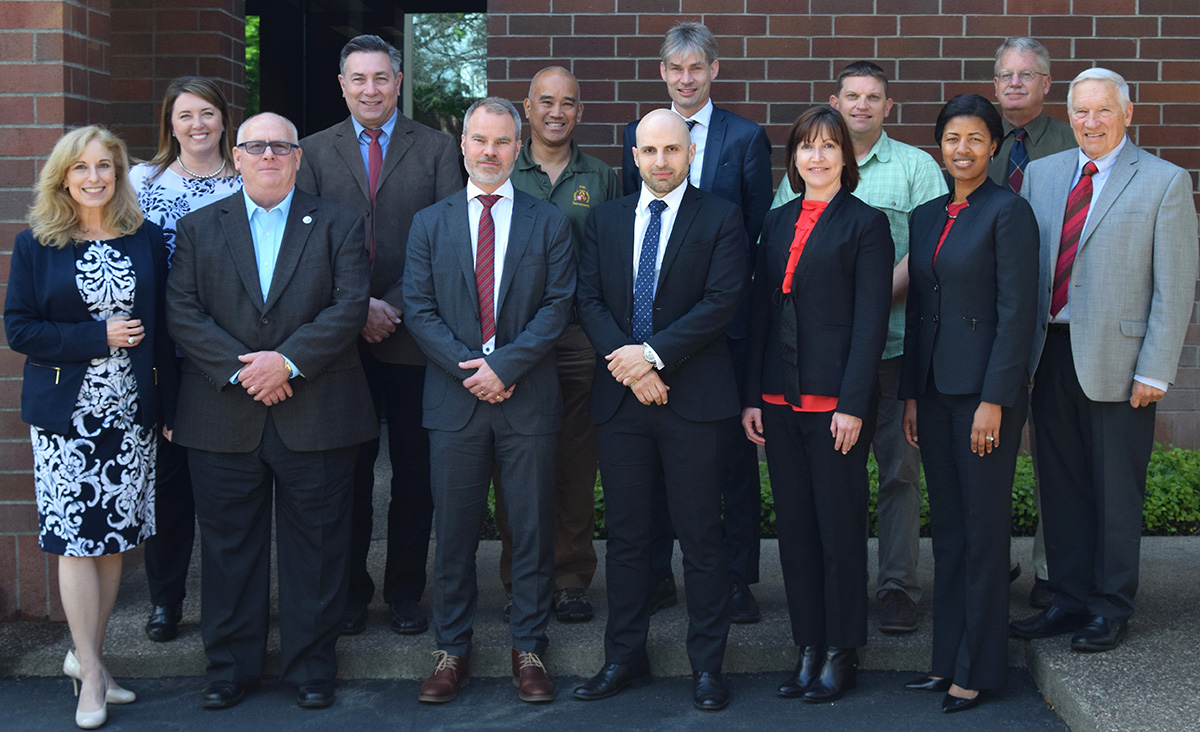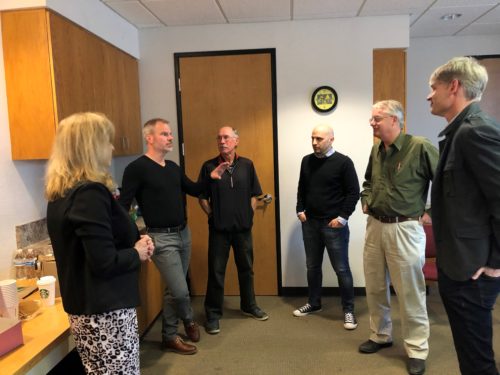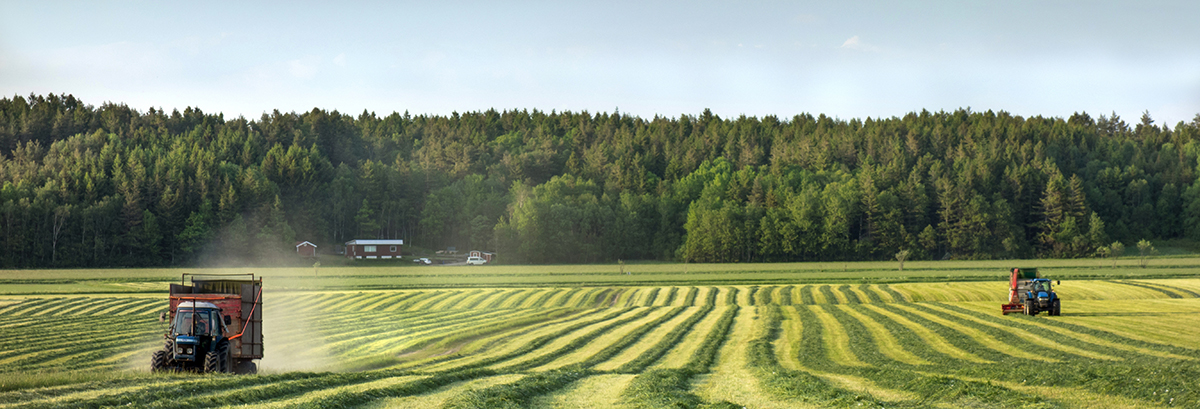Protecting our Food and Agriculture
Chris Brunner – June 21, 2018

WIFSS personnel, members of the InfraGard Sacramento Chapter, representatives from the FBI, and a delegation from Sweden, meet in Davis to develop strategies to protect food and agricultural systems.
A three-member delegation of Swedish government officials met with WIFSS personnel, April 17-20, 2018, as part of an ongoing collaboration to better understand the dangers and vulnerability of antagonistic threats to food and agriculture. The delegation represented the Swedish Board of Agriculture, National Veterinary Institute, and the Swedish Defense Research Agency. Sweden officials have been working with WIFSS to develop strategies to protect their food and agricultural systems against risks and vulnerabilities due to natural, accidental, and intentional adulteration to raw or processed foods, and the risk to food security. The continuing project is coordinated by the Swedish Board of Agriculture.
Finding real world solutions to issues facing Sweden and the U.S. from threats of agroterrorism is the driving force behind the WIFSS-Sweden partnership.
Why WIFSS
Swedish educational institutions and government agencies are eager to glean from the expertise WIFSS offers in developing courses through the Department of Homeland Security to protect the food supply from agroterrorism. A decade plus of experience in developing DHS awareness level courses in the skills and knowledge to recognize vulnerabilities to an agricultural or food system disaster puts WIFSS at the forefront in training first responders and members of the agricultural community. The training that WIFSS designs and delivers focuses on the dangers of agroterrorism, and how communities and companies can develop counter measures and response plans that will mitigate the effects of an attack.
These courses can be used to increase awareness among Sweden’s law enforcement, emergency response teams, and industry stakeholders about the potential targets and impacts of agroterrorism.
Partnering for Solutions
During the April visit WIFSS’ David Goldenberg introduced the Swedish delegation to a working group of InfraGard members. InfraGard is a collaboration of private industry and the FBI, incorporating identified sectors, including agriculture, that are deemed critical infrastructure and vulnerable to terrorist attacks. The delegation was interested in this unique networking system that unites both industry and the government. Goldenberg is Food and Agriculture’s Co-Sector Chief in the InfraGard Sacramento Chapter.

Magnus Normark, Swedish Defense Research Agency, makes a point talking to Catherine Bernstein, Tim Carpenter, Haris Keremidis, Mike Payne, and Rickard Knutsson.
WIFSS personnel including Mike Payne, David Goldenberg, Heather Johnson and Bennie Osburn described WIFSS programs relating to topics that are designed to facilitate training and education of stakeholders and the workforce about the roles they play in protecting the safety and security of the food and agricultural systems. In addition, the training and education about antagonistic threats to the food and agriculture will help strengthen U.S. and Sweden national security planning.
Dr. Payne reviewed a case in which a livestock operation had been subject to a terrorist attack. Local law enforcement and the FBI are working together to resolve criminal acts that are occurring on a nationwide basis. WIFSS is bridging the gap between law enforcement, the dairy industry, and the university, to create training courses for local sheriffs departments, producers, and workers to implement preventative measures against terrorist activities on livestock and poultry facilities. These courses serve as a model for the Swedish government to incorporate into their civil defense system.
Payne points out that the WIFSS-Sweden partnership is establishing long-term training, educational outreach, and a research program, he emphasizes that, “This goes a long way to ensure the safety of the food and agricultural sectors of both Sweden and the U.S.”

